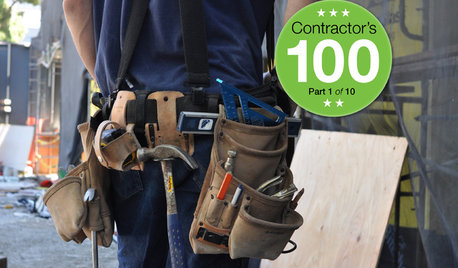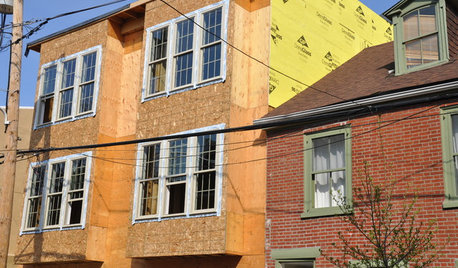inspection advice requested...
tcufrog
4 years ago
Featured Answer
Comments (13)
maifleur01
4 years agoRelated Professionals
Palos Verdes Estates Architects & Building Designers · Bay City General Contractors · Eatontown General Contractors · Forest Grove General Contractors · Greensburg General Contractors · Hayward General Contractors · North Lauderdale General Contractors · Richfield General Contractors · Rotterdam General Contractors · Summit General Contractors · Honolulu Home Stagers · Seattle Home Stagers · Union City Home Stagers · Linton Hall Interior Designers & Decorators · Wareham Interior Designers & Decoratorstcufrog
4 years agolast modified: 4 years agotcufrog
4 years agoDenita
4 years agolast modified: 4 years agoncrealestateguy
4 years agohomechef59
4 years agochocolatebunny123
4 years agoDenita
4 years agochisue
4 years ago
Related Stories

CONTRACTOR TIPSBuilding Permits: The Inspection Process
In Part 5 of our series on home building permits, we explore typical inspection schedules for a variety of project types
Full Story
MOVINGHome-Buying Checklist: 20 Things to Consider Beyond the Inspection
Quality of life is just as important as construction quality. Learn what to look for at open houses to ensure comfort in your new home
Full Story
CONTRACTOR TIPSBuilding Permits: The Final Inspection
In the last of our 6-part series on the building permit process, we review the final inspection and typical requirements for approval
Full Story
REMODELING GUIDESContractor Tips: Advice for Laundry Room Design
Thinking ahead when installing or moving a washer and dryer can prevent frustration and damage down the road
Full Story
KITCHEN DESIGNSmart Investments in Kitchen Cabinetry — a Realtor's Advice
Get expert info on what cabinet features are worth the money, for both you and potential buyers of your home
Full Story
DECORATING GUIDES10 Design Tips Learned From the Worst Advice Ever
If these Houzzers’ tales don’t bolster the courage of your design convictions, nothing will
Full Story
SMALL KITCHENSHouzz Call: Show Us Your Clever Small Kitchen
Have storage ideas? Layout advice? Post pictures of your space and share advice for making a small kitchen work well
Full Story
MOST POPULARThe Polite House: On ‘No Shoes’ Rules and Breaking Up With Contractors
Emily Post’s great-great-granddaughter gives us advice on no-shoes policies and how to graciously decline a contractor’s bid
Full Story
MOST POPULARContractor Tips: Top 10 Home Remodeling Don'ts
Help your home renovation go smoothly and stay on budget with this wise advice from a pro
Full Story
WORKING WITH PROS5 Steps to Help You Hire the Right Contractor
Don't take chances on this all-important team member. Find the best general contractor for your remodel or new build by heeding this advice
Full StorySponsored
Columbus Area's Luxury Design Build Firm | 17x Best of Houzz Winner!
More Discussions







functionthenlook